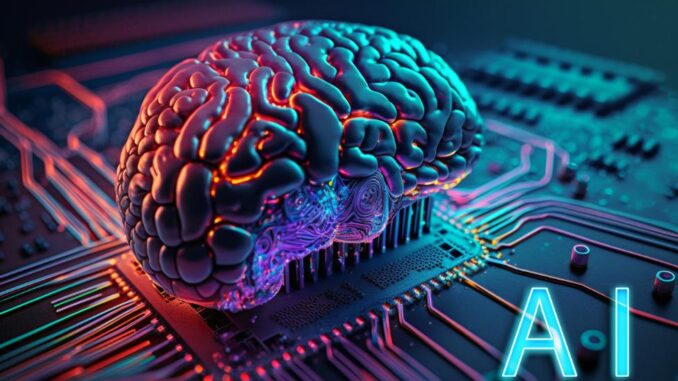
The implications and applications of AI present both opportunities and challenges. While AI has the potential to drive innovation, improve efficiency, and enhance quality of life across various sectors, it also raises important ethical,
social, and regulatory questions that need to be addressed. As AI technology continues to evolve, ongoing dialogue and collaboration among stakeholders—including policymakers, businesses, and communities—will be essential to ensure its responsible and beneficial use.








The implications and applications of artificial intelligence (AI) are vast and transformative, affecting various sectors and aspects of life. Here’s a detailed overview:
### Implications of AI
1. **Economic Transformation:**
– **Job Displacement and Creation:** AI can automate repetitive tasks, leading to job displacement in some areas while creating new roles in technology, data analysis, and AI management.
– **Productivity Gains:** Businesses can achieve significant productivity improvements and cost reductions through AI-driven automation and optimization.
2. **Ethical and Social Considerations:**
– **Bias and Fairness:** AI systems can perpetuate or exacerbate bias if trained on biased data, leading to fairness issues in applications like hiring, lending, and law enforcement.
– **Privacy Concerns:** The use of AI often involves processing large amounts of personal data, raising concerns about surveillance and data privacy.
3. **Regulatory Challenges:**
– Governments and organizations face the challenge of developing regulations that promote innovation while ensuring safety, security, and fairness in AI deployment.
4. **Shift in Skill Requirements:**
– As AI systems become more integrated into workplaces, the demand for workers with technical and analytical skills will increase, necessitating new training and education programs.
5. **Human-AI Collaboration:**
– AI is reshaping the nature of work, enabling enhanced human-AI collaboration where AI assists with tasks rather than fully replacing human roles.
### Applications of AI
1. **Healthcare:**
– **Diagnostics:** AI algorithms can analyze medical images (like X-rays and MRIs) to detect diseases early, improving patient outcomes.
– **Personalized Medicine:** AI enables the development of tailored treatment plans based on individual genetic and clinical information.
– **Administrative Automation:** AI can streamline administrative tasks, such as appointment scheduling and billing, allowing healthcare professionals to focus on patient care.
2. **Finance:**
– **Fraud Detection:** AI systems analyze transaction patterns to detect and prevent fraudulent activity.
– **Algorithmic Trading:** AI algorithms can analyze market data and execute trades much faster than human traders.
– **Credit Scoring:** AI can provide a more nuanced assessment of creditworthiness, potentially reducing bias in traditional scoring systems.
3. **Manufacturing:**
– **Predictive Maintenance:** AI monitors equipment to predict failures before they occur, minimizing downtime and repair costs.
– **Quality Control:** AI systems can evaluate products in real-time to ensure consistent quality and reduce waste.
4. **Transportation:**
– **Autonomous Vehicles:** Self-driving cars leverage AI for navigation, obstacle detection, and traffic management.
– **Traffic Management:** AI can optimize traffic flow in urban areas, reducing congestion and emissions.
5. **Business and E-commerce:**
– **Customer Service:** Chatbots and virtual assistants powered by AI can handle customer inquiries efficiently and at scale.
– **Recommendation Systems:** E-commerce platforms use AI to analyze user behavior and provide personalized product recommendations.
6. **Education:**
– **Personalized Learning:** AI can adapt educational content and experiences to individual student needs, enhancing learning outcomes.
– **Assessment Tools:** AI can assist in grading and providing feedback on student performance.
7. **Retail:**
– **Inventory Management:** AI systems can predict demand and optimize inventory levels, reducing costs and improving customer satisfaction.
– **Customer Insights:** AI analyzes shopping patterns and behaviors to help retailers better understand their customers and tailor marketing strategies.
8. **Energy:**
– **Smart Grids:** AI optimizes energy distribution and consumption across the grid, integrating renewable sources and enhancing reliability.
– **Energy Efficiency:** AI can analyze usage patterns to suggest energy-saving improvements for homes and businesses.
9. **Agriculture:**
– **Precision Farming:** AI systems analyze soil conditions, weather patterns, and crop health to optimize farming practices and increase yields.
– **Supply Chain Optimization:** AI enhances the efficiency of agricultural supply chains, from planting to distribution.


Leave a Reply